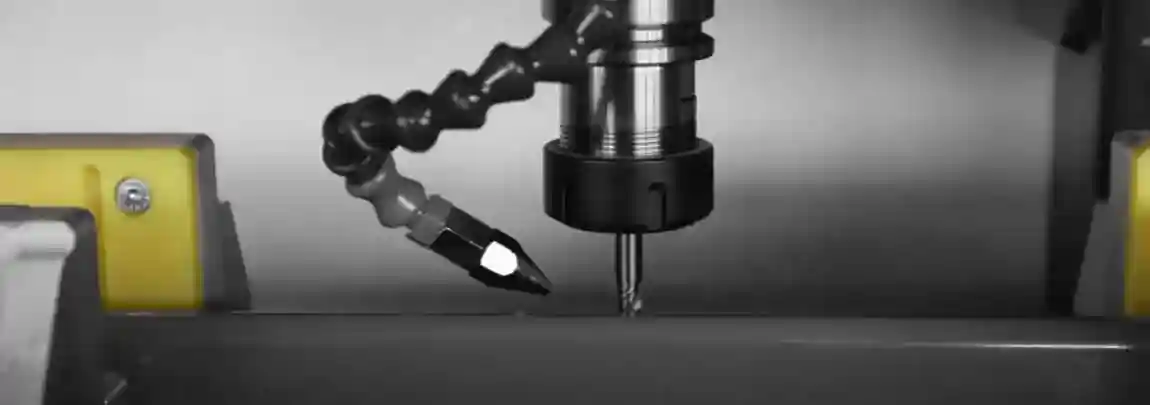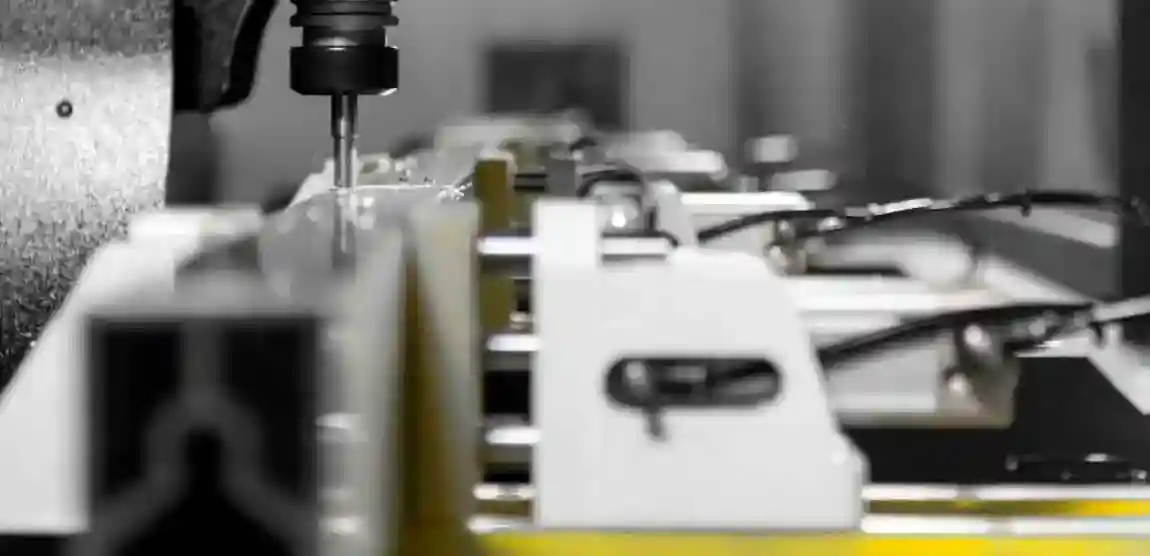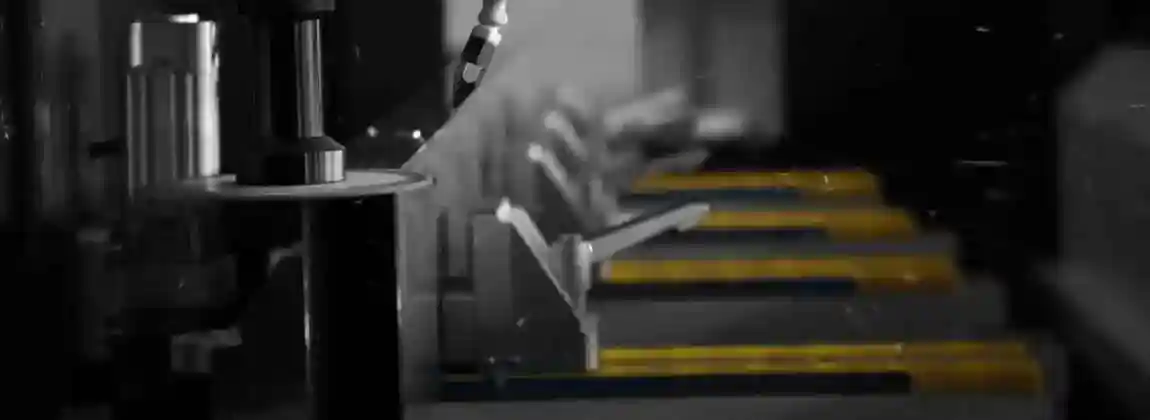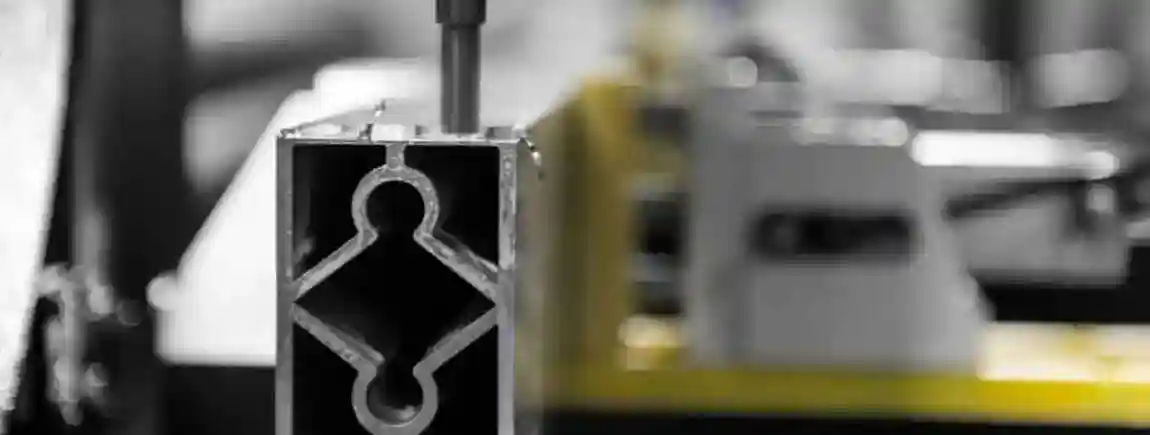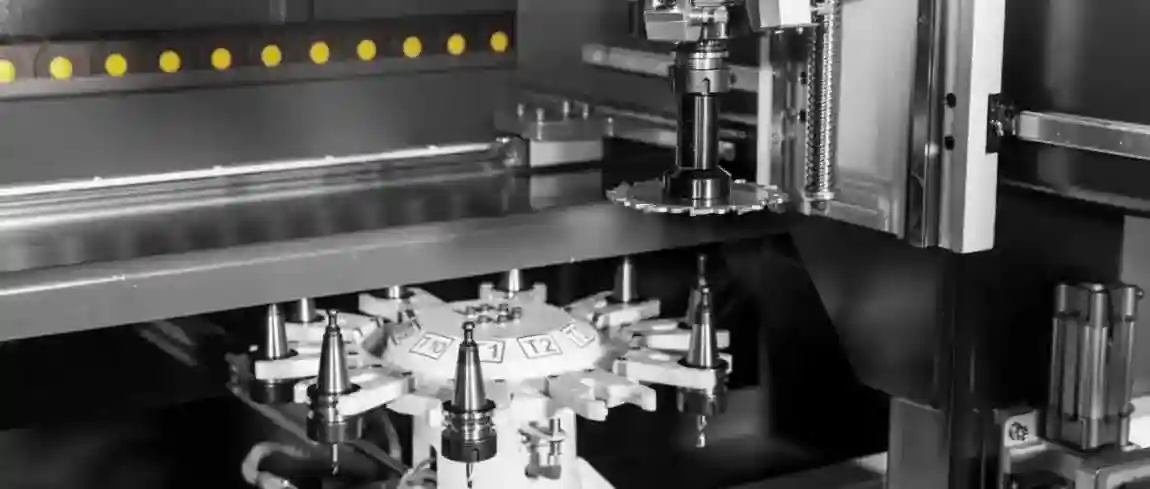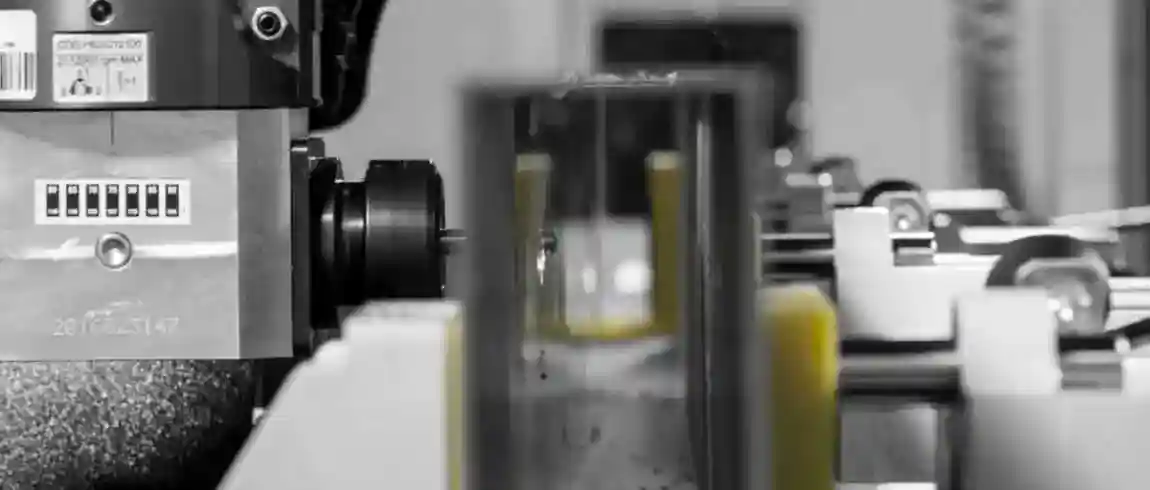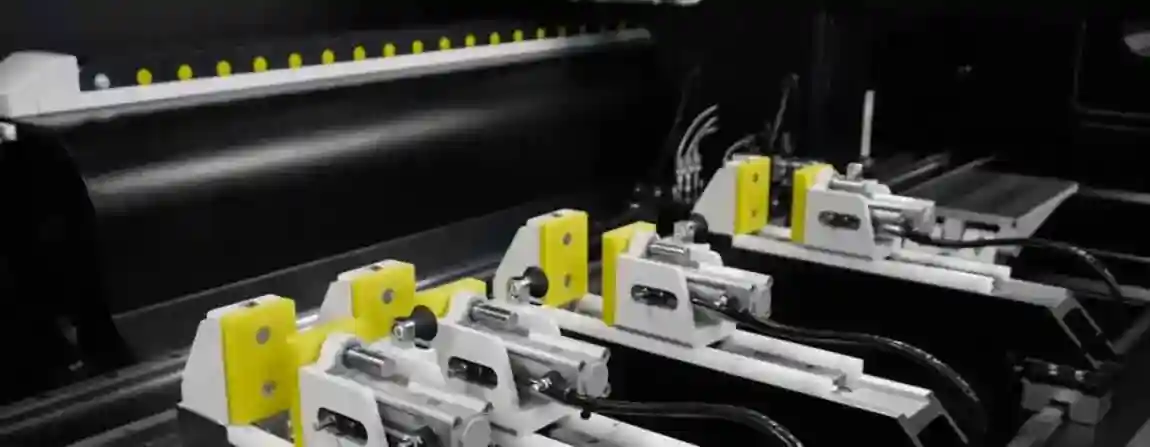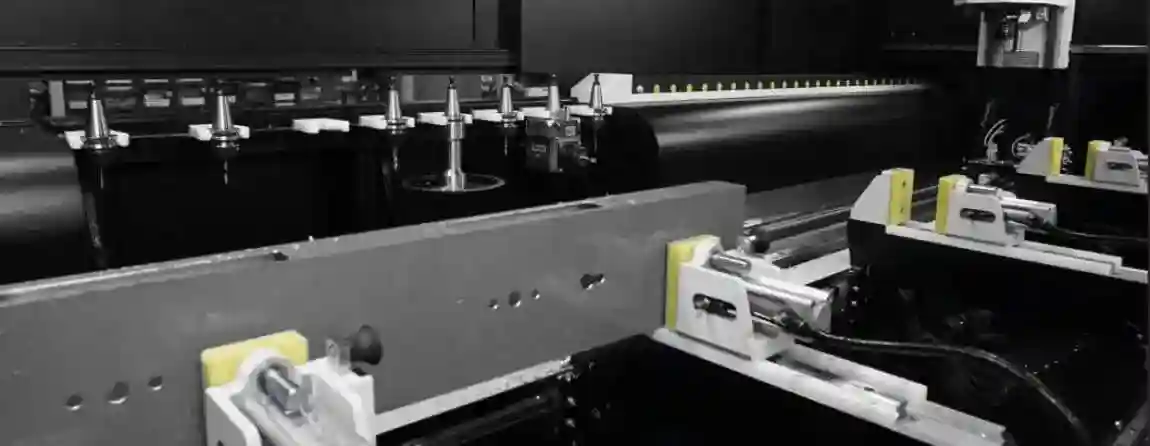-

Company
Product
ALUMINIUM MACHINES
PORTABLE MITER SAWS FOR ALUMINUM
PORTABLE COPY ROUTER MACHINES FOR ALUMINIUM
PORTABLE END MILLING MACHINES FOR ALUMINIUM
AUTOMATIC MITER SAWS FOR ALUMINIUM
COPY ROUTER MACHINES FOR ALUMINIUM
END MILLING MACHINES FOR ALUMINIUM
ALUMINUM CORNER CRIMPING MACHINE
DOUBLE MITRE SAWS FOR ALUMINIUM
AUTOMATIC SAWS FOR ALUMINIUM
BAR PROCESSING CENTERS
MACHINING CENTERS FOR ALUMINIUM COMPOSITE PANELS
NOTCHING SAWS
WEDGE CUTTING SAWS AND NOTCH CUTTING SAWS
MITER SAWS FOR ALUMINIUM
PVC PLASTIC MACHINES
PORTABLE MITER SAWS FOR PLASTIC
PORTABLE COPY ROUTER MACHINES FOR PLASTIC
PORTABLE END MILLING MACHINES FOR PLASTIC
MITER SAWS FOR PLASTIC
COPY ROUTERS FOR PLASTIC
END MILLING MACHINES FOR PLASTIC
WELDING MACHINES FOR PLASTIC
CORNER CLEANING MACHINES FOR PLASTIC PROFILES
DOUBLE MITRE SAWS FOR PLASTIC
BAR PROCESSING CENTERS
GLAZING BEAD SAWS
AUTOMATIC MITRE SAWS FOR PLASTIC
METAL MACHINES
MANUAL METAL SHEET BENDING MACHINE
MANUAL BENDING MACHINES
HYDRAULIC BENDING MACHINES
NON MANDREL BENDERS
PLATE BENDING MACHINES
BORDERING AND TRIMMING MACHINES
HORIZONTAL PRESSES
BELT GRINDING MACHINES
PIPE NOTCHING MACHINES
PIPE POLISHING MACHINES
LASER CUTTING MACHINES
PRESS BRAKES
VERTICAL TURNING CENTERS
MACHINING CENTERS
WOOD MACHINES
GLASS MACHINES
ROBOTICS SPECIAL MACHINERY
Service
Blog
Contact
Blog
- Home
- Blog
- PVC WINDOW MACHINE
- WELDING MACHINE FOR PLASTIC PROFILES
WELDING MACHINE FOR PLASTIC PROFILES
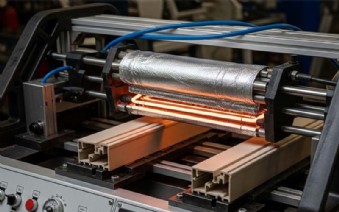
Welding Machine for Plastic Profiles: Technology, Applications, and the Future of Plastic Joining
The welding machine for plastic profiles is the core element of modern plastic processing, particularly in the window, door, and façade industries. It enables the precise and permanent joining of PVC, ABS, and other thermoplastic profiles, ensuring structural stability, airtightness, and dimensional accuracy. In industrial series production, it is indispensable, as it guarantees consistent quality, high speed, and repeatability.
This detailed technical article examines the welding machine for plastic profiles from multiple perspectives – technical, operational, economic, and future-oriented. It covers working principles, machine types, applications, cost efficiency, CE certification, quality control, and new trends such as automation, AI, and digital integration.
Thanks to our many years of experience gained from numerous customer projects, we ensure that all inspections are carried out with the highest precision and full compliance with CE safety and quality standards. This philosophy defines Evomatec’s engineering approach and secures long-term production reliability.
The Importance of the Welding Machine for Plastic Profiles in Modern Industry
Plastic profiles are a fundamental component of modern manufacturing and construction. Whether in window and door frames, façade elements, or technical applications, the quality of the welded joints determines the product’s longevity and performance.
The welding machine is designed to join thermoplastic profiles using controlled heat and pressure. This ensures permanent bonding without compromising the material’s structural integrity.
Such machines are used in various industries – window and door manufacturing, furniture production, automotive, medical, and equipment engineering. Their main task is to fuse plastic materials efficiently and safely under industrial conditions.
Evomatec develops advanced welding systems tailored to the demands of high-precision production lines. With years of engineering expertise, we guarantee that every inspection and machine verification is carried out according to CE safety and quality regulations.
Historical Development of Plastic Profile Welding Technology
From Manual Techniques to Industrial Automation
The origins of plastic welding date back to the 1950s, when PVC profiles were joined manually by heating and pressing. The results depended entirely on the operator’s skill.
During the 1970s, semi-automatic welding machines with pneumatic controls emerged, enabling reproducible results for the first time. By the 1980s and 1990s, CNC-controlled systems with digital temperature control and integrated safety mechanisms had revolutionized production.
Today, modern welding machines are highly advanced precision systems featuring automated profile feeding, digital process monitoring, and network connectivity.
Thanks to decades of expertise in mechanical engineering, Evomatec ensures that every welding system meets the highest CE safety standards and that all inspections are performed with maximum precision and care.
Technical Principles and Operating Process
Welding plastic profiles is based on thermal fusion — the controlled melting and pressing together of contact surfaces. When heated to the appropriate temperature, the surfaces soften, fuse under pressure, and, once cooled, form a homogeneous, inseparable bond.
Step-by-Step Welding Process
-
Profile Clamping – The cut profiles are precisely positioned and fixed in place.
-
Heating – A Teflon-coated heating plate softens the joint surfaces evenly.
-
Joining Phase – After the correct temperature is reached, the heating plate is withdrawn, and the profiles are pressed together.
-
Cooling Under Pressure – The joint is held under pressure until fully solidified.
-
Release – The welded part is removed and inspected.
Key Process Parameters
-
Temperature: Typically between 220 °C and 260 °C, depending on the material
-
Pressure: Determined by wall thickness and geometry of the profiles
-
Time: Welding and cooling times are carefully optimized
-
Material: PVC, ABS, PMMA, or PP each require different parameters
Modern CNC-controlled systems continuously monitor and adjust these parameters to guarantee perfect results.
Evomatec implements advanced control technology to ensure that every machine operates within CE-certified safety and performance limits.
Construction and Design of a Plastic Profile Welding Machine
A modern welding machine typically consists of the following key components:
-
Machine frame: Solid steel or aluminum structure designed for vibration reduction and precision.
-
Heating element: Electrically heated plate with anti-stick coating for uniform heat transfer.
-
Clamping units: Pneumatic or hydraulic systems for profile fixation.
-
CNC control unit: Precisely manages temperature, pressure, and time.
-
Cooling system: Speeds up solidification to minimize cycle times.
-
Safety systems: CE-compliant guards, light barriers, and emergency stop mechanisms.
Digital touch panels, remote control options, and integrated data logging are standard features of modern systems.
Evomatec integrates all these technologies in its machines, ensuring that each one undergoes rigorous CE-compliant inspection and quality validation.
Types of Welding Machines for Plastic Profiles
Single-head welding machine
Compact and versatile, designed for small-scale or custom production.
Double-head welding machine
Ideal for medium-scale operations, welding two joints simultaneously.
Four-head welding machine
Standard in industrial window manufacturing — welds all four corners of a frame in one cycle.
Fully automated CNC welding lines
Advanced production lines with automatic feeding, digital control, and real-time process data integration.
Seamless welding technology
Produces visually perfect, smooth joints with no visible weld seams — ideal for premium design applications.
Applications
Welding machines for plastic profiles are used across a wide range of industries:
-
Window and door manufacturing – Welding PVC frames and sashes.
-
Façade systems – Creating weather-resistant structural connections.
-
Automotive industry – Producing interior components and technical plastic assemblies.
-
Furniture production – Joining decorative or functional plastic profiles.
-
Medical and equipment engineering – Precision welding of specialized profiles.
Evomatec collaborates with manufacturers in all these industries, ensuring that every system is optimized for efficiency, precision, and CE safety compliance.
Advantages of the Welding Machine for Plastic Profiles
-
High precision and repeatability through CNC control
-
Uniform and airtight joints
-
Short cycle times and high productivity
-
No need for adhesives or fasteners
-
Minimal material waste
-
CE-certified safety for operators and systems
-
Long lifespan and low maintenance requirements
-
Consistent product quality in mass production
Evomatec’s advanced machines combine these advantages with continuous quality assurance and CE-certified inspection protocols.
Challenges and Limitations
-
Initial investment: Advanced CNC systems require higher upfront costs.
-
Maintenance: Regular cleaning and calibration of heating elements are essential.
-
Operator training: Personnel must be familiar with process parameters and safety standards.
-
Material dependency: Each polymer type demands specific temperature and pressure settings.
Despite these challenges, the benefits in precision, energy efficiency, and product consistency far outweigh the drawbacks.
Quality Assurance and CE Certification
CE certification is mandatory for all plastic profile welding machines within the European Union. It ensures compliance with the European Machinery Directive, guaranteeing operator safety, quality, and traceability.
Quality checks include:
-
Visual inspection of weld seams
-
Strength and pressure testing
-
Dimensional accuracy verification
-
Long-term durability testing
Evomatec places great emphasis on CE-compliant production and inspection. With years of industry experience, we ensure that every process is conducted with utmost precision and safety.
Economic Efficiency and Cost Considerations
A plastic profile welding machine is a long-term investment that quickly pays off through efficiency, reliability, and reduced waste.
Key Cost Factors
-
Degree of automation (manual, semi-automatic, or fully automated)
-
Welding capacity and throughput
-
Control system sophistication
-
Maintenance frequency and cost
In high-volume production, automated CNC welding lines typically deliver the best return on investment.
The Future of Plastic Profile Welding Technology
Digitalization and Industry 4.0
Modern welding systems are increasingly connected. Sensors and network interfaces enable real-time monitoring and predictive maintenance.
Artificial Intelligence (AI) Integration
AI-driven systems automatically optimize temperature and pressure settings based on material behavior and environmental factors.
Sustainability and Energy Efficiency
Next-generation machines feature low-energy heating systems and recyclable components to reduce environmental impact.
Seamless Design and Aesthetics
Invisible welds and clean joint aesthetics are becoming a growing demand in high-end architectural and design applications.
Evomatec continuously integrates these innovations, combining advanced technology with decades of engineering experience to maintain the highest CE and quality standards.
Conclusion
The welding machine for plastic profiles is an indispensable part of modern industrial production. It combines precision, speed, and sustainability, enabling strong, airtight, and visually flawless joints.
From compact single-head models to fully automated CNC welding lines, this technology offers solutions for every production scale.
With our long-standing experience from hundreds of customer projects, we ensure that every inspection, commissioning, and service process meets CE-conform safety and quality standards. Evomatec stands for innovation, precision, and trust in industrial machine engineering.
FAQ – Frequently Asked Questions
1. How does a welding machine for plastic profiles work?
It heats the profile ends to melting temperature and presses them together under controlled pressure, forming a homogeneous and permanent joint.
2. Which materials can be welded?
Mainly PVC, ABS, PMMA, and PP, depending on the specific machine configuration and temperature control system.
3. What are the advantages of CNC control?
CNC control ensures repeatability, automatic parameter adjustment, and digital process documentation for quality assurance.
4. How expensive is maintenance?
Low, provided heating plates and seals are cleaned and checked regularly.
5. Why is CE certification important?
It ensures compliance with European safety and quality standards, protecting both operators and manufacturers.
Free consultation available at www.evomatec.com
- welding machine for plastic profiles
- plastic profile welding technology
- PVC profile welding machine
- plastic welding machine for windows
- thermal fusion welding of plastic profiles
- CNC welding machine plastic
- hot plate welding plastic
- automatic welding machine for plastic profiles
- plastic profile jointing technology
- CE certified plastic welding machine
- industrial welding technology plastic profiles
- window manufacturing plastic profiles
- plastic processing optimization
- Industry 4.0 plastic welding
- plastic profile fabrication systems
 GERMANY
GERMANY ENGLISH
ENGLISH FRANCE
FRANCE SPAIN
SPAIN PORTUGAL
PORTUGAL

